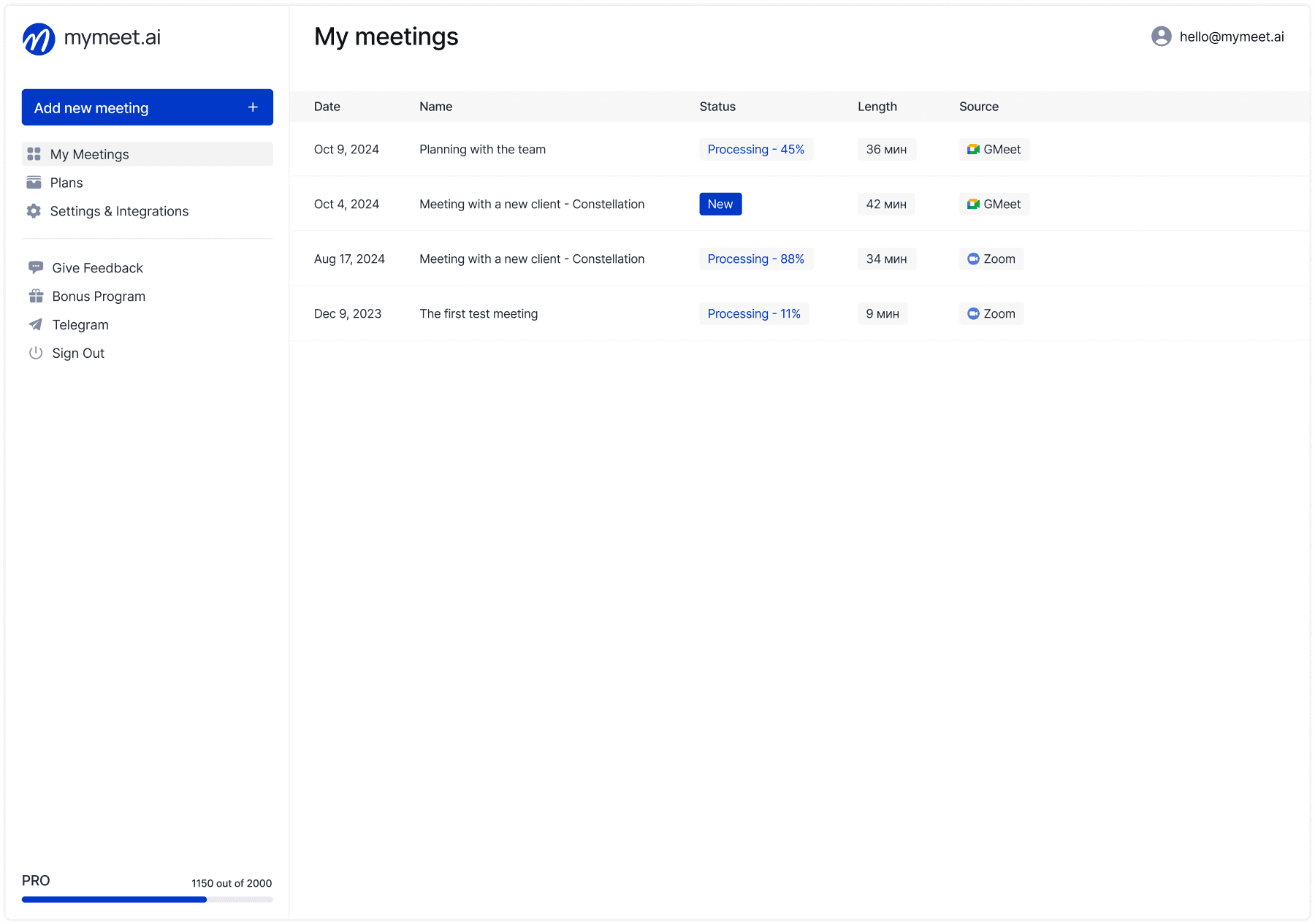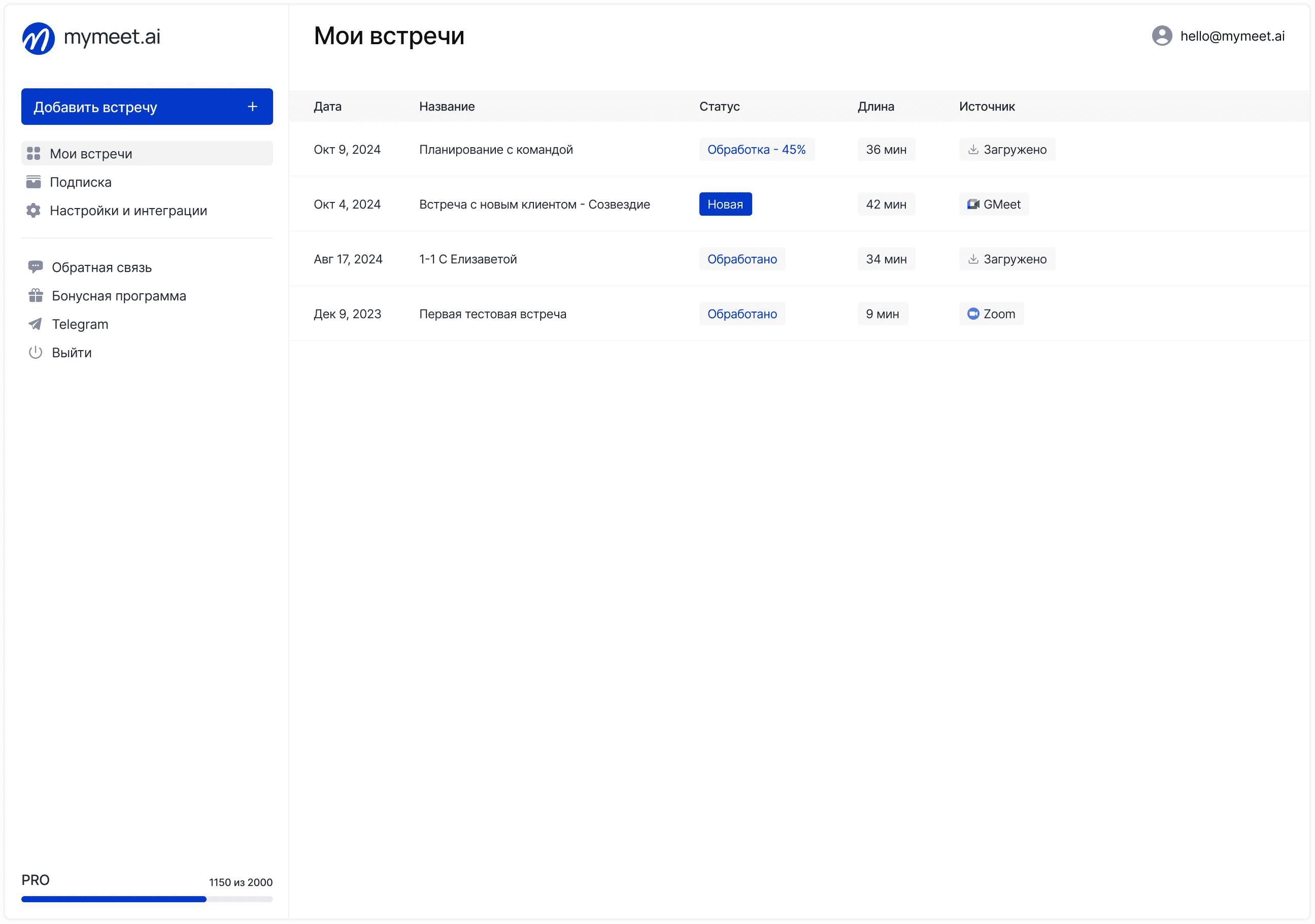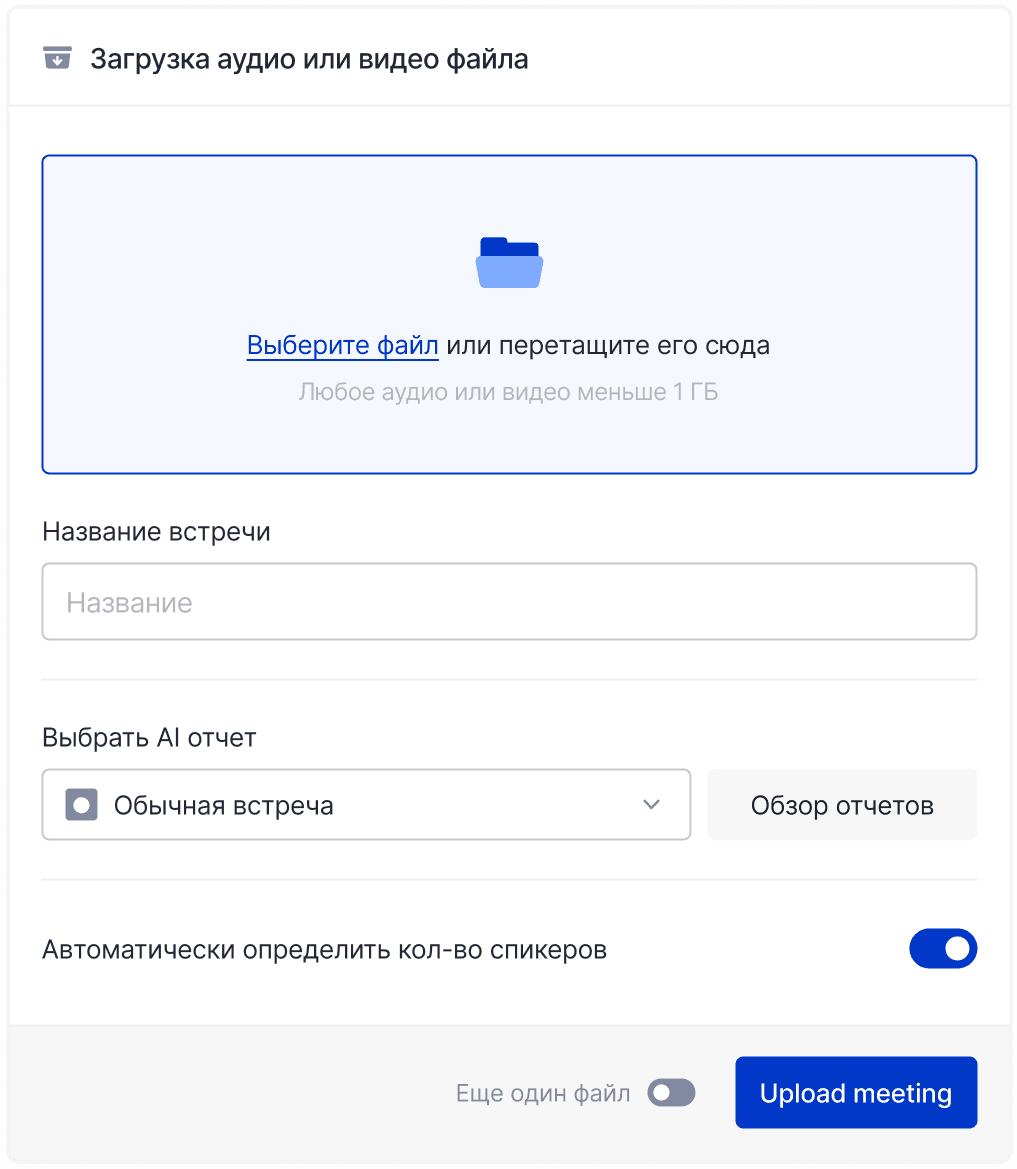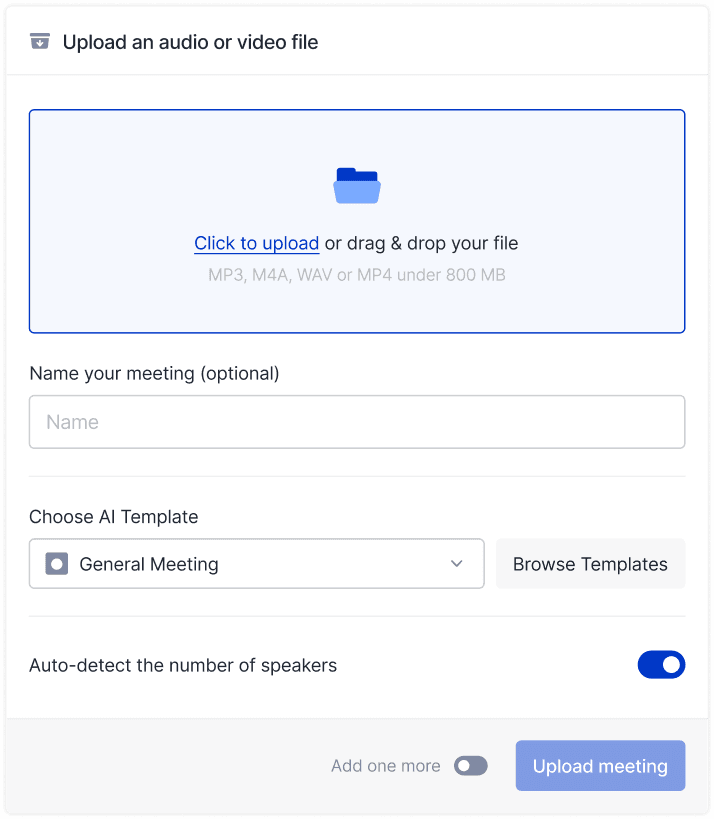Technology & AI

Radzivon Alkhovik
Jul 2, 2025
The CEO of electro.cars was spending 20 hours per week analyzing client meetings. Recording agreements, extracting tasks, compiling reports for the team. One month after implementing an AI assistant, this figure dropped to 5 hours. 15 hours were freed up for actual sales.
This isn't an isolated case. Thousands of companies worldwide are already using artificial intelligence to solve routine tasks, analyze data, and make business decisions. AI has stopped being a future technology—it's working here and now.
Many entrepreneurs know about AI capabilities but don't understand how to apply these technologies in their field. In this article, we'll show specific ways to use artificial intelligence, real implementation results, and practical steps to get started.
What is Artificial Intelligence for Business: Definition and Fundamentals
Artificial intelligence in business refers to technologies that perform tasks without constant human supervision. Unlike regular programs, AI learns from data, adapts to new situations, and makes decisions independently.
Simple example of the difference:
Regular program: "If order amount exceeds $135, apply 5% discount"
AI: "Analyze customer behavior, purchase history, seasonality and suggest optimal discount for profit maximization"
In global business, AI is especially in demand due to skilled labor shortages and the need to increase productivity. Companies with implemented AI show notable revenue growth and operational efficiency.
Main Types of AI for Business
Modern AI technologies for business are divided into several categories, each solving specific company challenges.
Machine Learning
Algorithms that improve performance based on experience and data. Machine learning analyzes historical data, identifies patterns, and makes predictions for future events.
Used for sales forecasting, customer behavior analysis, price optimization, and resource planning. Helps companies make decisions based on facts rather than intuition.
Natural Language Processing (NLP)
Technologies for understanding and generating human speech. NLP allows computers to work with text and voice as naturally as humans do.
Applied in chatbots for customer service, review and comment analysis, automatic document processing, and meeting transcription. Especially valuable for global companies thanks to advancing speech recognition technologies across multiple languages.
Computer Vision
Computer ability to analyze images and video. Computer vision systems recognize objects, faces, text, and anomalies in visual content.
Used in production quality control, security and surveillance systems, medical diagnostics, and warehouse operation automation. Helps replace human oversight in processes requiring high accuracy and speed.
Robotics and Automation
Physical and software systems capable of performing tasks autonomously. Modern robotics combines AI with mechanical systems to create smart assistants.
Applied in manufacturing for product assembly, logistics for sorting and packaging goods, customer service for request processing, and process management for coordinating different department operations.
AI Capabilities for Business: Key Application Areas
Artificial intelligence solves tasks that previously consumed hours of work time. From automating routine work to analyzing large data sets—AI helps companies work faster and more accurately.
Automating Routine Tasks
Companies worldwide lose significant work time on routine operations. AI frees employees from this burden, allowing focus on strategic tasks.
Examples of time savings in companies:
Processing incoming requests: AI distributes inquiries to responsible managers multiple times faster than manual work
Report compilation: Automatic report filling reduces time by hours
Document sorting: AI categorizes documents by content significantly faster than humans
Calendar management: Automatic meeting scheduling saves executives time daily
Big Data Analysis
AI systems process terabytes of information and find hidden patterns. Algorithms identify trends that humans simply wouldn't notice in data arrays.
Data analysis applications:
Customer behavior analysis for creating personalized offers
Demand forecasting for goods and services considering seasonality
Identifying sales trends and marketing campaign effectiveness
Price optimization based on market data and competitive environment
Personalizing Customer Experience
AI creates unique experiences for each customer. The system studies preferences, purchase history, and user behavior, forming personal offers.
Customer experience personalization methods:
Recommendation systems in online stores based on purchase history
Personalized email campaigns with relevant content for each customer
Individual offers and discounts based on buyer preferences
Adaptive website and app interfaces for user needs
Process Optimization
AI finds weak points in company operations and suggests solutions. Algorithms analyze each business process stage and show where to speed up or save.
Business process optimization examples:
Improving logistics routes to reduce delivery time and fuel costs
Optimizing employee schedules considering workload and competencies
Warehouse inventory management to minimize storage costs
Automatic production cycle planning and equipment loading
Data-Driven Decision Making
AI helps leaders make informed decisions. The system analyzes factors, builds forecasts, and suggests development scenarios with risk assessment.
AI-supported decision making:
Forecasting financial results under various business development scenarios
Risk analysis when launching new products or entering new markets
Evaluating marketing campaign effectiveness and customer acquisition channels
Resource planning based on demand forecasts and market trends
Examples of AI Application in Business by Industry
Each industry uses AI differently. Some automate sales, others analyze personnel. Let's examine specific applications of artificial intelligence across different business sectors.
Sales and Marketing
Sales departments use AI for deal forecasting, negotiation analysis, and lead management automation. Result—more closed deals with less time investment.
Sales Forecasting: AI analyzes deal history, customer behavior, and market factors for accurate revenue forecasting. The system shows which deals will close with high probability.
Lead Scoring: Algorithms evaluate potential customer quality based on their behavior, acquisition source, and characteristics. Managers work with the most promising leads.
Marketing Automation: AI manages email campaigns, configures social media advertising, and personalized website content based on visitor behavior.
Competitor Analysis: Monitoring systems track competitor prices, marketing activities, and customer reviews to adjust company strategy.
HR and Personnel Management
HR specialists save time on candidate selection and employee evaluation. AI accelerates resume screening, analyzes interviews, and helps identify team issues.
Personnel Recruitment: AI matches candidate skills with job requirements in seconds. The system ranks resumes by fit and highlights top candidates for interviews.
Employee Performance Analysis: Algorithms analyze work results, task completion time, and team interaction quality. HR receives data for personnel development planning.
Turnover Prediction: AI identifies employees with high resignation risk based on various factors—from sick leave frequency to corporate chat activity.
HR Process Automation: Chatbots answer employee questions about company policies, vacation, and benefits, freeing HR specialists for strategic tasks.
Finance and Accounting
Financial departments automate routine operations and improve control. AI processes documents, detects fraud, and helps plan budgets.
Accounting Operation Automation: AI processes invoices, receipts, and contracts, extracts key information, and fills accounting systems. The system recognizes text, verifies data accuracy, and automatically creates entries, reducing routine operation time.
Risk Management: Algorithms analyze customer credit risks, identify suspicious transactions, and predict default probability on obligations. AI works in real-time and instantly reacts to anomalies.
Financial Planning: AI helps compile budgets and forecasts by analyzing historical data, seasonality, and external economic factors. The system builds various development scenarios and evaluates their probability.
Investment Analytics: Systems analyze markets, track quotes and news to support investment decisions and portfolio management. AI processes huge volumes of financial information and highlights significant trends.
Operations
Operational processes become faster and more reliable thanks to AI. Monitoring systems predict breakdowns, optimize logistics, and manage supply chains.
Inventory Management: AI forecasts product demand, optimizes inventory levels, and automatically generates supplier orders to minimize storage costs.
Predictive Maintenance: Monitoring systems analyze equipment sensor readings and predict failures. Companies plan repairs in advance and avoid downtime.
Logistics Optimization: AI builds optimal delivery routes considering traffic, weather, and order priority. This reduces fuel costs and speeds up delivery.
Quality Control: Computer vision systems check production line product quality, identifying defects faster and more accurately than humans.
Business AI Solutions: Real Implementation Cases
Practical examples show real AI value for business. Let's examine specific cases of successful artificial intelligence implementation in companies worldwide.
Retail: How Retailers Use AI
Major retailers actively implement AI for assortment management and offer personalization. Systems analyze purchasing behavior and forecast demand with high accuracy.
AI implementation results in retail:
Significant reduction in dead stock
Notable increase in inventory turnover
Margin growth through purchase optimization
Logistics cost savings
Online stores show impressive results from using AI for personalization. Recommendation systems significantly increase conversion and average customer spend.
Banking Sector: Revolution in Lending and Service
Banks actively implement AI for credit risk assessment and customer service automation. Automated scoring systems significantly accelerate credit decision-making.
Banking process transformation:
Substantial reduction in credit application processing time
Improved scoring accuracy and reduced credit risks
Standard customer inquiry automation through chatbots
Significant operational cost savings
Banks also use AI to combat fraud. Systems analyze transactions in real-time and block suspicious operations, substantially reducing fraud losses.
Manufacturing: How AI Helps Industry
Major manufacturers implement computer vision on production lines and achieve impressive results. AI identifies product defects with high accuracy, exceeding human control.
Manufacturing quality revolution:
Substantial defect rate reduction
Significant savings from defect prevention
Multiple-fold increase in quality control speed
Reduced unplanned downtime
Oil and gas companies use AI for predictive equipment maintenance at refineries. Systems analyze numerous parameters in real-time and predict failures in advance. This allows planned repairs and avoids costly emergency production stops.
mymeet.ai: How AI Assistant Automates Business Meetings

Executives spend most of their time in meetings and client negotiations. Important discussion details get lost, agreements are forgotten, and valuable insights remain unfixed. Traditional note-taking distracts from discussion participation.
How mymeet.ai Solves Meeting Automation Tasks
The mymeet.ai AI assistant connects to online meetings and automatically creates structured reports. The system analyzes negotiation content, highlights key decisions, and forms action plans with responsibilities and deadlines.

Key mymeet.ai capabilities:
Automatic transcription with speaker separation and timestamps

Integration with popular platforms: Zoom, Google Meet, Teams
Support for 73 languages including quality speech recognition
Specialized AI reports for sales, HR, and project management

Telegram bot for quick audio processing directly in messenger
AI chat for interactive questions about meeting content
mymeet.ai Implementation Results
electro.cars saves 15 hours weekly on sales meeting analysis. BigDigital agency reduced call documentation time by 50 hours monthly. The AI assistant frees executives from routine note-taking and improves agreement documentation quality.
Benefits of AI Implementation in Business Processes
Companies that have implemented AI technologies achieve measurable results across different activity aspects. Let's examine the main benefits of using artificial intelligence.
Time and Resource Savings
AI automates routine tasks and frees employees for strategic work. Result—reduced operational costs and increased productivity.
Typical time savings amount to 20-40% for automated processes. Employees spend less time on routine and more on solving complex tasks.
Improved Accuracy and Work Quality
Algorithms work without fatigue and human error. AI reduces mistakes in data processing and decision-making processes.
Companies note 15-30% error reduction in AI-implemented processes. The effect is especially noticeable in financial accounting and quality control.
Solution Scalability
AI systems easily adapt to growing business needs. When data volumes increase, the system handles them without proportional staff growth.
One AI algorithm can process data volumes that would require dozens of employees. This is especially important for fast-growing companies.
Competitive Advantages
Companies with AI gain access to deep analytics, adapt faster to market changes, and offer personalized customer experiences.
AI helps make data-based decisions rather than intuition-based ones. This is especially important in rapidly changing market conditions.
ROI and Payback
Properly implemented AI solutions pay for themselves through process automation, improved decision quality, and increased business efficiency.
Average AI project payback period is 6-18 months depending on implementation complexity and scale.
How to Implement AI in Business: Step-by-Step Guide
Successful artificial intelligence implementation requires systematic approach and clear planning. Many companies make mistakes trying to implement AI without preliminary preparation and needs analysis.
Current Process Audit
Start with existing business process analysis. Identify tasks performed regularly, requiring significant time, or prone to human errors.
Compile a list of automation candidate processes with potential time and resource savings assessment.
Choosing Appropriate Solutions
Study ready-made AI platforms in your industry. Pay attention to integration simplicity, language support, available templates, and user reviews.
For most tasks, ready-made solutions work better—they're cheaper and faster to implement than building from scratch.
Step-by-Step Implementation Plan
Proper stage sequence is key to successful AI solution integration into company operations.
Recommended AI implementation stages:
Pilot project with limited functionality—test the solution on a small task
Testing and user feedback collection—study team reaction and identify issues
Setting and process adjustments based on results—eliminate shortcomings and optimize work
Gradual usage expansion to related tasks—add new functions as you master them
Company-wide solution scaling—implement AI in all suitable processes
Want to integrate mymeet.ai into your corporate systems or get API access? Contact our sales team through the form.

Team Training
Prepare employees for working with new technologies. Conduct training on AI system basics, explain usage benefits, and show how technologies will simplify their work.
It's important to show employees that AI is a tool for increasing their efficiency, not a threat to jobs.
AI Implementation Mistakes in Business: What to Avoid
Studying common mistakes helps avoid problems and make AI implementation more effective. Most failed projects relate to incorrect planning and inflated expectations.
Trying to Automate Everything at Once
Many companies try implementing AI in all processes simultaneously, leading to chaos and employee resistance. Start with simple tasks and gradually expand technology application.
Ignoring Data Quality
AI systems work with data, and result quality directly depends on input information quality. Ensure data is structured, current, and sufficient for algorithm training.
Lack of Clear Strategy
AI implementation should be part of overall company development strategy. Chaotic use of individual tools won't bring expected effects.
Underestimating Personnel Training Importance
Employee resistance to new technologies often relates to misunderstanding their capabilities. Invest in team training and explain how AI will help them work more effectively.
Checklist: Is Your Company Ready for AI Implementation?
Before starting AI solution implementation, it's important to honestly assess company readiness for changes. This checklist helps determine your organization's current stage.
Are there repeating tasks? Identify regularly performed processes
Is there enough data? Ensure structured information availability for analysis
Is the team ready? Assess employee acceptance level for new technologies
Is the budget determined? Allocate funds for implementation and training
Is there technical support? Ensure IT resources for integration
Are goals clear? Formulate specific tasks for AI solution
Conclusion
Global business actively adopts artificial intelligence technologies. Companies starting implementation now gain competitive advantages for years ahead. Those delaying risk falling behind.
Key decision-making facts:
Companies worldwide increase AI investments
AI projects show quick payback
IT specialist shortage makes automation critically important
Don't wait for the perfect moment or comprehensive solution for all tasks. Start simple—automate meetings, document processing, or customer data analysis. The first successful project will show your team AI value and open scaling opportunities.
The time to start is now. Each month of delay means lost profit and competitive position loss.
Try AI in action today — start with automating your business meetings using mymeet.ai. 180 minutes of free testing will show real time savings for your team.
FAQ on AI Implementation
What is artificial intelligence for business in simple terms?
AI for business refers to technologies that help automate tasks, analyze data, and make decisions without constant human involvement.
How much does AI solution implementation cost in a company?
Costs vary from several hundred dollars for simple solutions to hundreds of thousands for complex systems. It's better to start with budget tools.
Which business processes should be automated first?
It's recommended to start with routine repeating tasks: document processing, meeting analysis, customer inquiry handling.
Are programmers needed for AI implementation in business?
Modern AI platforms are created for regular users. Technical skills aren't required for basic usage.
How to measure ROI from business process automation?
Compare time spent on tasks before and after implementation, multiply savings by employee hourly cost.
Is it safe to use AI for corporate data?
When choosing proven solutions with security certificates and data encryption, risks are minimal.
How long does employee training for AI work take?
For basic AI tools, 1-2 days of training suffice. Complex systems may require weeks of training.
Which industries benefit most from digital transformation?
Sales, marketing, HR, finance, and logistics show the greatest results from AI technology implementation.
Can AI be implemented in small businesses?
Yes, many accessible solutions exist specifically for small and medium businesses with simple setup.
What's better—ready AI solutions or custom development?
Ready-made solutions work for most tasks. Custom development is justified only for unique business processes.
Radzivon Alkhovik
Jul 2, 2025








